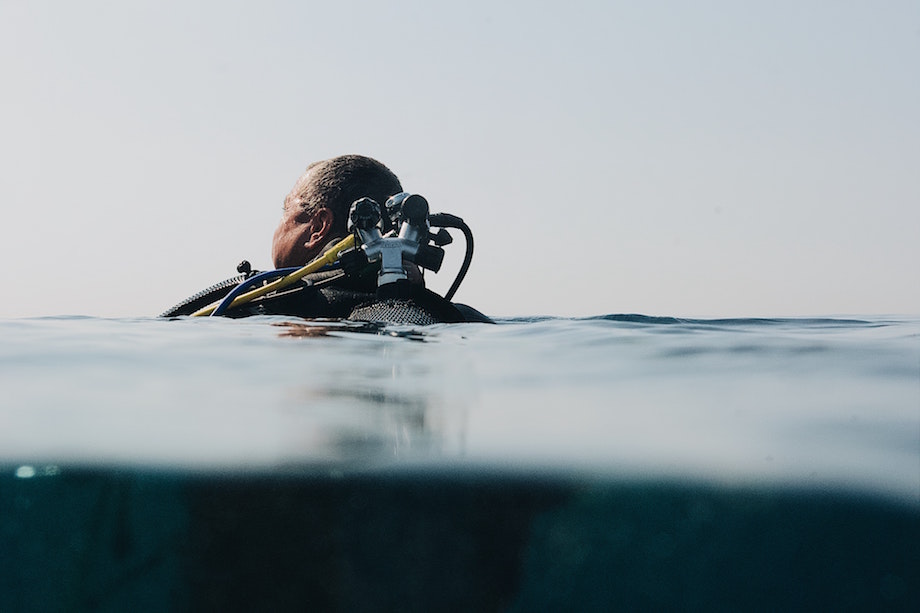Australians love to scuba dive and we travel to all corners of the world to do it. But the risks of diving should never be forgotten, and with it the chance that a diving-related injury or accident might not be covered by your travel insurance. Read on to see what the rules are when it comes to claiming for scuba diving.
As anyone who’s recently done their training will tell you, scuba diving is a risky sport that comes with its own distinctive injuries and potentially life-threatening hazards.
What can go wrong?
Most scuba diving dangers stem from the effects of increased water pressure undersea, diver panic, and faulty equipment. Yet oddly enough, drowning is the leading cause of diver fatalities. Drownings typically happen when a diver becoming unconscious.
And how might a diver become unconscious? Spinning into a panic or losing consciousness on a dive trip can often be blamed on underlying medical conditions. But the other culprits are tied to diving itself. Risks include decompression sickness (DCS, the bends), arterial air embolism, pulmonary embolism, and nitrogen narcosis – a condition that leads to hallucinations and can be fatal.
Defective equipment is another risk. As many scuba divers tend to not own their equipment, they’re reliant on renting equipment. A broken depth gauge could lead to a mild case of decompression sickness, while a bad regulator might result in drowning.
How can you stay safe?
The scary-sounding nitrogen narcosis can affect divers who venture below the depth of 30 meters. This is one of the reasons why 30.48 meters is the limit for recreational scuba diving.
Sticking to the limits is one way to skirt danger, but nothing will prepare you better for diving than taking a quality scuba diving course with an accredited organisation. We’re talking the likes of PADI, ADAS and CMAS.
Diving with a qualified instructor is of course the next best thing you can do – most especially when you’ve had only a few dives under your belt.
The buddy system and thoroughly checking rented or personal diving equipment every time you use it are also part of the strategy.
Will travel insurance cover scuba diving?
The short answer is yes, but you’ll have to meet strict conditions. The first being that your dive should not exceed a depth of 30 meters. If you’re diving without an instructor, you need to hold a valid, accredited diving license, recognised in Australia. And if you’re diving with an instructor, they need a license from a certified or accredited body.
What can you claim for?
If you become unwell or experience a life-threatening emergency while scuba diving, you can claim for emergency medical, ambulance and hospital costs.
If your policy covers trip cancellations – so that would be a Basic, Comprehensive or Domestic policy, you might be able to claim for pre-paid scuba activities that you miss out on because you’re unable to travel, for a valid reason.
Regarding your scuba diving gear, as long as your diving gear is lost or stolen while not in use, as in, not while you were scuba diving, then your gear is covered under any Travel with Kit travel insurance policy, up to $750.00.
Our standard policy won’t cover rented scuba equipments, and lost gear can’t have been left unsupervised or in a place that was unsecured – like an unlocked locker, for example.
YOU’RE COVERED IF…
- You hold a valid open water diving licence recognised in Australia.
- If you don’t hold a license, you must be diving under licensed instruction.
- You don’t dive beyond a depth of 30 meters
YOU’RE NOT COVERED WHEN…
- Scuba diving without a valid, Australian issued open water diving license.
- Your diving instructor does not hold a valid licensed.
- Competing or taking part in a professional diving contest or activity that includes scuba diving.
- Intentionally exposing yourself to a needless risk or not taking reasonable care except in an attempt to save a human life. Search and rescue costs are not covered.
- Drinking alcohol before a dive can lead to dehydration, impaired decision making and a host of other risks. Travel insurance will also not cover any claims related to alcohol consumption, both in and out of the water.
- You claim for the loss of rented scuba equipment
- Your claim relates to a pre-existing medical condition not automatically covered
- You need medical care while diving domestically (Medicare and private health insurance covers this)
Want extra cover for scuba diving?
Two of our optional extra Packs provide additional cover for scuba diving.
Our Water Sports Pack is really good for claims related to scuba gear. So if your diving equipment is lost, stolen or damaged, or delayed by your transport provider for more than 24 hours, Kit’s Water Sports Pack covers the cost of hiring alternative gear up to $1,ooo.
The Water Sports Pack also provides cover for damage to your gear while in use. So if you have an accident while diving up to 10 metres deep and your diving gear is damaged, we can reimburse you up to $2,000. Your scuba gear is also covered here if you’re ice diving or cave diving.
If you need cover up to $1,000 for rented scuba gear, and for additional medical cover, take a look at our Adventure Pack. `
Image by Maël BALLAND from Pexels





